No More Scheffervilles
Forty years ago this summer, the Cleveland-based Iron Ore Company of Canada closed its open pit mine in Quebec’s far northeast, putting the future of the town of Schefferville into doubt. Most of the housing in the town of 2,500 was owned by the departing company as was the long railway line south to Sept-Iles, the only land-link to the outside world. While most industrial closures receive little public attention outside of the immediate locality or region, Schefferville became front page news across Canada for weeks, even years. What explains this sustained interest?
Postdoc opportunity: Deindustrialization, Gender, and Family at the University of Glasgow
Please refer to the original job posting on job.ac.uk to see the full posting, job reference number, and details on how to apply:
Location: Glasgow, Scotland
Salary: £37,474 to £42,115 per annum
Applications due: February 8, 2023
“The University of Glasgow seeks a postdoctoral researcher to join the Gender and Family strand of the project ‘Deindustrialization and the Politics of our Time’ (DéPOT), funded by the Canadian Social Science and Humanities Research Council. The successful candidate will work with Dr. Jackie Clarke and an international team of researchers and project partners. The overall aim of the DéPOT project is to transnationalize our understanding of the historical roots and lived experiences of deindustrialization, as well as political responses to it.
Applicants are invited to upload with their application a statement (500 words) outlining their proposed research and how it will contribute to the project. Topics of interest include but are not limited to: rethinking gendered spaces of deindustrialization (e.g. deindustrialization and leisure, home or consumption); gender and the political economy of deindustrialization; trans-generational perspectives; gender, race and deindustrialization; deindustrialization and the body; queering deindustrialization studies. Transnational and/or comparative proposals are particularly welcome.
The post is based in Glasgow, where the successful candidate will have the opportunity to participate in the Centre for Gender History.
Informal enquiries may be directed to Dr Jackie Clarke Jackie.Clarke@glasgow.ac.uk
This post is full time (35 hr per week) and fixed term for 18 months.
For further information on the College of Arts, School of Modern Languages & Cultures, please visit www.gla.ac.uk/schools/mlc
For more information and to apply online: my.corehr.com/pls/uogrecruit/erq_jobspec_version_4.jobspec?p_id=106088
It is the University of Glasgow’s mission to foster an inclusive climate, which ensures equality in our working, learning, research and teaching environment.
We aim to reflect and celebrate in our workforce the diversity and global reach of our wider community. We also strongly endorse the principles of Athena SWAN, including a supportive and flexible working environment, with commitment from all levels of the organisation to promoting [inclusion, diversity and] gender equity. Applications are particularly welcome from women, ethnic minorities and other under-represented groups. In line with the commitments in the University of Glasgow’s Gaelic Language Plan, we also welcome and value skills in Gaelic language for anyone working within areas where key Gaelic services are delivered, in particular within the School of Humanities / Sgoil nan Daonnachdan and the College of Arts.
The University of Glasgow, charity number SC004401.”
Call for Papers: The Politics of Deindustrialization | Appel aux communications: La politique de la fermeture industrielle
Read the call for papers for our 2023 conference in Sydney, Nova Scotia. | Lisez l’appel à communications pour notre conférence de 2023 à Sydney, en Nouvelle-Écosse.
Slag Banks and Acts of Erasure
Clara Casian reflects on the traces left by the steel industry on Barrows Island’s landscape.
Honouring the Original Derry Girls: the Resurgence of the Commemoration and Celebration of Shirt Making in Derry, Northern Ireland
Naomi Petropoulos writes on the legacy of industrial shirt-making in Derry, Northern Ireland.
EXPANDING BOUNDARIES: NEW PERSPECTIVES ON DEINDUSTRIALIZATION
Part Two of DePOT’s roundtable series on new publications in the international field of deindustrialization studies recently took place. Among the new perspectives that emerged, Lachlan MacKinnon highlights the unique contributions that this new scholarship has made to the field.
Bridging divides: new perspectives on deindustrialization
By Steven High
DePOT recently organized the first of two roundtables on new publications in the international field of deindustrialization studies. Among the new perspectives that emerged, Steven High highlights three ways that the new scholarship is bridging old historiographic divides.

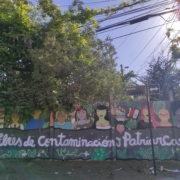

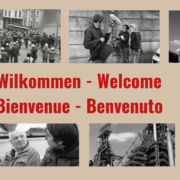
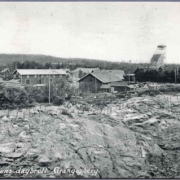 Source: Store Norske Leksikon
Source: Store Norske Leksikon Tenby, South Wales. Wikicommons. Used under a Creative Commons Attribution-Share Alike 4.0 International license.
Tenby, South Wales. Wikicommons. Used under a Creative Commons Attribution-Share Alike 4.0 International license. 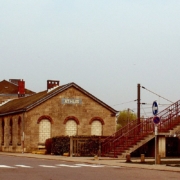
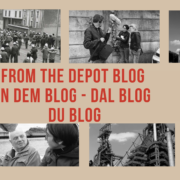
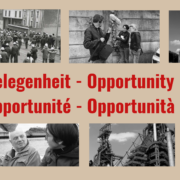
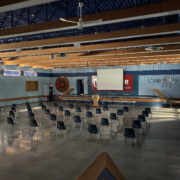 Author's own
Author's own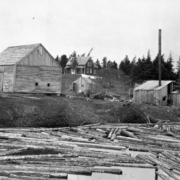 Canada. Dept. of Mines and Resources / Library and Archives Canada / PA-021558
Canada. Dept. of Mines and Resources / Library and Archives Canada / PA-021558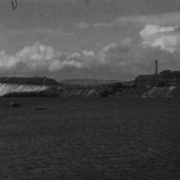
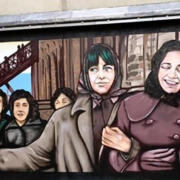 Mural in the Craft Village, Derry depicting Tillie and Henderson’s factory workers linking arms on their walk home from work. Photo: Naomi Petropoulos
Mural in the Craft Village, Derry depicting Tillie and Henderson’s factory workers linking arms on their walk home from work. Photo: Naomi Petropoulos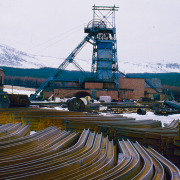 Tower Colliery, December 1982. Photo: John Podpadec.
Tower Colliery, December 1982. Photo: John Podpadec. 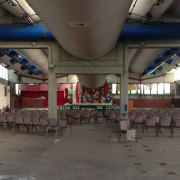 Abandoned workers' council assembly hall in a Porto Marghera chemical factory, 2017. Photo: Gilda Zazzara.
Abandoned workers' council assembly hall in a Porto Marghera chemical factory, 2017. Photo: Gilda Zazzara.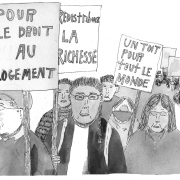 Illustration: Kerri Flanagan.
Illustration: Kerri Flanagan. 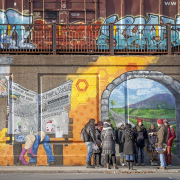 Steven High's Working Class Public History course in the final stage of developing an audio walk of the deindustrialized Point Saint-Charles district of Montreal. Photo: David Ward.
Steven High's Working Class Public History course in the final stage of developing an audio walk of the deindustrialized Point Saint-Charles district of Montreal. Photo: David Ward.
